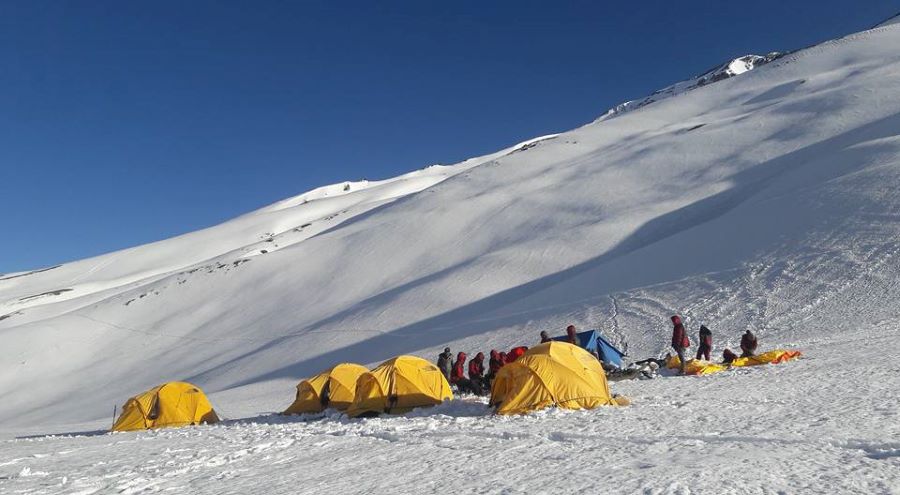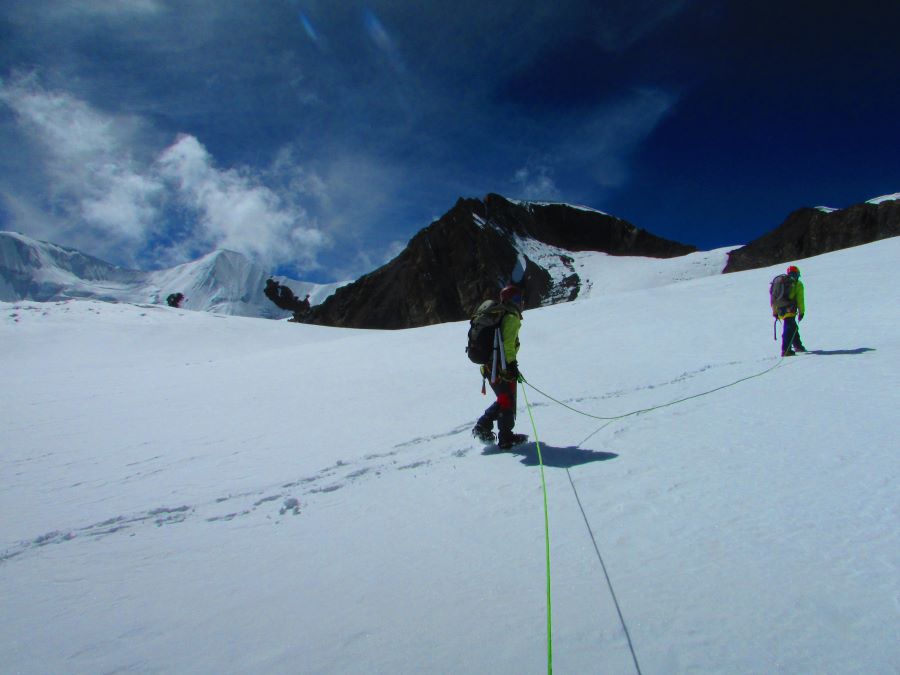Mera peak (6,461m) is the highest trekking peak in Nepal. This peak is located at the Hinku valley and the Mahalangur range. Mera Peak contains three main peaks, Mera Central (6,461 m), Mera North (6,476 m) and Mera South (6,065 m). most people do in Mera Central. The central sea was first climbed on May 20, 1953 by Colonel Jimmy Roberts and Sen Tenzing. The Mera Peak ascent is a non-technical summit, however you must have experience of glacier walking with crampons and ropes. The ascent of Mera is the challenge. It takes a lot of energy to complete the climb. From the summit of Mera offers a 360 degree panoramic view of Everest (8848m), Lhotse (8516m), Makalu (8485m), Kangchenjunga (8586m) and Cho Oyu (8201m) as well as many other peaks in the Khumbu region.
We take an early morning flight from Kathmandu to Lukla which takes 35 minutes. offers breathtaking views of the snow-capped peaks. in Lukla we meet local teams (porters and assistance guide). Traveling through the beautiful alpine forests and crossing several small villages. We follow the roller coaster trail through the heart of rhododendron forest, Pine to the wild Hinku valley to reach Mera Peak. Finally the quick return to Lukla via the Chetrawa La pass (4610 m). This is a great route, we do the loop at Lukla.





 EQUIPMENT LIST
EQUIPMENT LIST